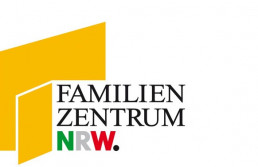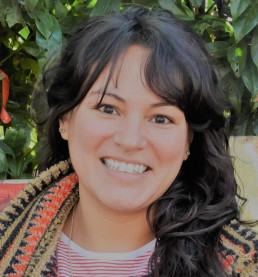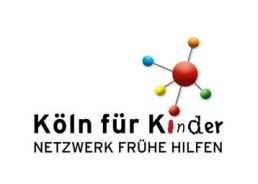"It takes a village to raise a child"
Community building for multilingual and multinational families in Cologne
The offers of our family centers complement the offers of our daycare centers – both during the opening hours of the daycare centers and regularly in the evenings and on weekends. The focal points of our program are:
Community building
- Parent cafes (during the day)
- “After kita hangout” for parents and children (in the afternoon after daycare ends)
- Parent-child activities on weekends
- Events for grandparents
- Fathers’ program
- Social activities for adults
- Provision of premises for children’s birthday parties
- Parenting time meeting for zero to one year olds and their parents
Educational partnership
- Parents’ evenings on pedagogical topics
- Support in finding babysitters and daycare providers
- Participation in empowerment programs (“Courage is good”)
Early help
- Application of in-depth procedures for early detection in the daycare center
- Initial consultation “in house
- List of counseling centers
Health protection/integration
- Participation in health programs
- Provision of rooms for external therapists
Expertise
- Trained professionals on the subject of health protection
- Trained professionals on child protection
- Trained professionals on intercultural issues
Literacy
- Reading mentors
Music programs
- Music and nature
Cooperation
- Elementary schools
- Pediatricians
- Senior centers
Our target group: Multilingual families
The daycare centers of rainbowtrekkers were among the first institutions in Cologne to approach parents with a decidedly multilingual care and education offer. For 15 years now, our concept has been firmly established in the Cologne daycare landscape.
Special emphasis is placed on the immersive teaching of multilingualism in the day-to-day life of the daycare center. The original focus was on German and English, which also grew out of the biography of the founders. In the past five years, however, we have developed from a bilingual to a multilingual institution that actively integrates the languages of origin of all children into the daycare activities beyond language hierarchies. We belong to the project group “Multilingualism in the Kita” of the University of Cologne.
A statistical analysis has shown that between 60 and 70 percent of the children in our care grow up in multilingual homes and speak at least two languages themselves. About 30 percent of the children in our care even grow up speaking three or more languages. The distribution of languages varies greatly from one family to the next.
Multilingual language competence can be an indication of a migration biography of the child or its parents. However, it is also an expression of what is normal in classically multilingual countries such as Switzerland, Luxembourg, Canada or Israel: depending on the interaction partner, certain things can be expressed better in one language and other things better in the other.
Our knowledge and experience in the field of multilingualism, gathered over the years, was the reason to set similar priorities in the conceptual design of our family centers. The family centers of rainbowtrekkers are aimed specifically at Cologne’s international community. Deviating from the common understanding as a social space oriented offer, we understand our family centers rather as a target group specific offer at different locations.
By international community we mean both people who have learned multilingualism in the family context and those who have acquired multilingualism through migration. It does not matter whether the migration history ended in Cologne or originated here. In defining our target group, we are guided by the principles of the Association of Binational Families and Partnerships:
The association […] advocates for the interests and concerns of binational/bicultural couples and families as well as for all people living in intercultural contexts in Germany. […] Our target groups are people in intercultural living environments. These include couples of different nationalities – including same-sex couples – immigrant families with and without German passports, single parents with bicultural children, and people who combine different cultural influences in their biographies.
The core of our target group is therefore the families whose children attend our daycare centers. This includes not only the core parent-child family, but the entire extended family network with members of all generations and genders. This core is surrounded by a sphere of friends and contacts of the families, who are also invited to participate in the offers of our family centers, even if their own children do not attend one of our Kitas or have long since left home. In the broadest sense, our target group includes all multinational or multilingual Cologne residents who feel addressed by our offerings regardless of which Veedel they live in.

Director

Ashley Detray is the director of our family centers. She is responsible for planning and implementing events for parents and families in our three facilities. In addition, she takes on conceptual tasks and networking activities in the respective district.
If there is interest, Ms. Detray can offer initial family support counseling and, if there is a need for further assistance, she can establish contact with specially trained counseling centers.
She sees building community among the multilingual and multinational families in Cologne as her main task when working in the family centers.
Ashley Detray is a native of Atlanta, Georgia, and has been with the rainbowtrekkers since 2014. After studying early childhood education, she first taught in the U.S., then lived in Italy, and finally settled in Cologne, Germany. Her resume is as international as the resumes of the target groups she wants to address with her program.
Cooperation directories
Our family centers cooperate with early intervention centers, therapists, pediatricians, family counseling centers, day care centers and schools in the district.
Below you can download a list of contacts from our local networks for each of our family centers.
Konzeption
We have summarized further information in our family center concept, which you can download here if you are interested.
Our goal: Empowerment of parents
With our family centers, we want to build a bridge between institutionalized childcare and the children’s home environments. From our point of view, both the children in the facilities and the families as a whole benefit from such openness and permeability between the systems.
Unsere Grundhaltung ist, dass zunächst einmal Eltern die Experten für ihr Kind sind. Dort wo es gewünscht wird, bieten wir als Familienzentrum unsere Sachkenntnis und langjährige Erfahrung an, um Eltern dabei zu unterstützen, die Entwicklung ihres Kindes bewusst(er) wahrzunehmen und zu begleiten.
Wir urteilen nicht über die Erziehungsansätze der Eltern. Wir sind vielmehr davon überzeugt, dass durch die Vernetzung der Eltern untereinander, die vom Familienzentrum initiiert werden, eine Gemeinschaft entsteht, die Raum für Erfahrungsaustausch schafft und die selbst als Unterstützungssystem wirken kann.
Wir beteiligen uns selbstverständlich am Netzwerk Frühe Hilfen und übernehmen eine Lotsenfunktion bei der Vermittlung an professionelle Beratungseinrichtungen. Wir sind aber überzeugt, dass zivilgesellschaftliches Engagement und Graswurzel-Initiativen der betroffenen Eltern mindestens genauso viel Gewicht haben sollten wie ein „fürsorgender Staat“ und die professionellen Angebote der Wohlfahrtsverbände. Wir sehen vor diesem Hintergrund in dem community building unserer Familienzentren einen wichtigen Beitrag zum Empowerment von Eltern.
Ein afrikanisches Sprichwort sagt: „Es braucht ein Dorf, um ein Kind großzuziehen.“ In einer Stadt wie Köln, in der jede zweite Person in einem Einfamilienhaushalt lebt, schaffen unsere Familienzentren solche „Dörfer“ für die mehrsprachigen Familien der Stadt. Den Wegfall der familiären Unterstützungsnetzwerke, der eine Folge der gesellschaftspolitischen Umbrüche der vergangenen Jahrzehnte war, werden wir damit nicht kompensieren können. Aber wir hoffen, dass wir uns von anderen Kulturen inspirieren lassen können, wie Kindererziehung weiterhin eine Gemeinschaftsaufgabe bleiben kann und nicht entweder allein auf den Schultern der Eltern ruhen oder an den Staat delegiert werden muss.
In diesem Sinne ist es unser Anspruch, Angebote zu schaffen, die zu einer besseren Vereinbarung von Beruf und Familie führen, die Erziehungspartnerschaften in unseren Einrichtungen stärken und Familien der international community in Köln dabei unterstützen, einen sozialen Rahmen zu schaffen, der solche Erfahrungen ermöglicht.
Members of:




